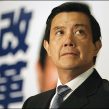
Hu’s New Year Charm Offensive toward Taiwan
Publication: China Brief Volume: 10 Issue: 4
By:

At a meeting held in Fujian Province in southeastern China on the eve of the Lunar New Year, Chinese Communist Party (CCP) Chief and President Hu Jintao met with businessmen from Taiwan and used the occasion to launch a charm offensive across the Taiwan Strait. At a business park in Zhangpu county in Zhangzhou city, created in 2006 for Taiwanese farmers to solicit investments by Taiwan-funded agricultural firms, President Hu stated:
"At the time when people across the Taiwan Strait are about to celebrate this traditional Chinese lunar new year, I would like to take this opportunity to say hello to all of you … I’ve said many times, as long as it is beneficial to our Taiwan compatriots, we will do our best to make it happen. We say it, and we will do it. Right now a treaty of Cross-Strait Economic cooperation [sic] Framework is under negotiation. This framework will contribute to the economies of both sides. We will fully take the interests of Taiwan compatriots, especially Taiwan farmers, into consideration when we negotiate. We will achieve it, and everyone will be satisfied with the result" (CCTV, February 14).
Beijing’s strategy of reaching out to Taiwanese farmers is not new. President Hu’s calibrated pitch to the rural constituency of the opposition Democratic Progressive Party (DPP) in Taiwan was a shot across the bow at the opposition party, which has been slowly climbing back from its defeat in the 2008 presidential election.
According to Zhu Weidong, deputy director of the Taiwan Research Institute at the Chinese Academy of Social Sciences (CASS)—the premier Chinese government think-tank—the timing, location, and agenda are “without a doubt” clear and strong signals (China Times, February 15).
The two opposing political camps in Taiwan were quick to frame the meaning behind Hu’s statements, which underscore the growing divide in Taiwanese society over the island’s policy toward China. According to Zhang Rong-gong, deputy secretary-general of the ruling-Kuomintang (KMT), Hu’s remark was a direct response to President Ma Ying-jeou’s new year’s press conference, in which Ma stressed the importance of signing the Economic Cooperation Framework Agreement (ECFA), and an expression of goodwill toward the Taiwanese society (United Daily News, February 15). The opposition-leaning Liberty Times published an article criticizing Hu’s performance as a charade and part of China’s incessant unification campaign. DPP Spokesperson Tsai Chi-chang noted, among other things, that previous commitments made by the Chinese government to buy farmers’ produce have fallen short, and warned that the Chinese leader’s words cannot be trusted (Liberty Times, February 14).
Against the backdrop of the reeling global economy and mounting concerns in Taiwan over the Ma administration’s handling of various domestic and international debacles (See “Managing the Chiang-Chen Talks in Cross-Strait Relations,” China Brief, January 21), the opposition DPP has managed to score several electoral victories in the January legislative by-elections against the ruling-KMT, of which Ma doubles as chairman. The KMT still controls a majority of the seats in Taiwan’s parliament (Legislative Yuan). Yet with another round of by-elections for four seats due at the end of February and the opposition candidate reportedly gaining ground against the KMT in at least one key race (TVBS Poll Center, February 10 – 11), Hu’s appeal may be targeted at countering DPP assertions about the inherent dangers of the ECFA for some of its constituents in Taiwan.
In a recent rally to support KMT candidates, Ma acknowledged the “tremendous pressure” the KMT was under to win. According to one report, “since the KMT came to power, it has encountered numerous challenges and that as success in the by-elections is so vitally important to make up for the party’s setback in Jan. 9 [sic] by-elections, everyone in the party should do their parts to drum up support for the KMT candidates” (Central News Agency [Taiwan], February 3).
As the opposition-DPP gains momentum, the Chinese leadership is also stepping up efforts to establish multiple platforms to further integrate the two sides of the Taiwan Strait. In the final analysis, these efforts, including Hu’s charm offensive, may to some degree reflect growing Chinese concerns about the Ma administration’s ability to maintain control of the tempo for the ongoing cross-Strait dialogue. At a period in time when the opposition-DPP is gaining ground but still not yet in a position to effectively check the administration’s cross-Strait policies, these moves appear to be based on the growing perception in Beijing that they are also in a bid against time. In light of China’s callous response to the recent announcement of U.S. arms sales to Taiwan, this episode highlights the limits of China’s current carrot-and-stick strategy toward Taiwan and spells more challenges ahead for a cross-Strait détente in the new year.





